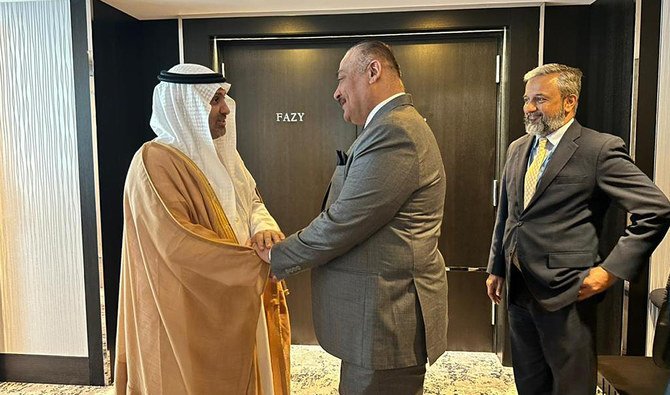Al-Jalajel agreed to give more opportunities to physicians, nurses, and medical technicians from his nation in the kingdom, the Pakistani minister added.

An official statement released in Islamabad on Thursday stated that Pakistan and Saudi Arabia had decided to increase their bilateral cooperation in the healthcare sector. It also stated that the two nations would work together to conduct research on vaccine development.
Following a meeting between Pakistan’s health minister and his Saudi counterpart, Fahad Al-Jalajel, at the UN’s headquarters in Geneva during the 76th World Health Assembly, a decision to collaborate in the medical field was made.
Defense and diplomatic ties between Pakistan and Saudi Arabia have always been strong, and in recent years, the two countries have worked to expand and deepen their cooperation to give their alliance greater strategic significance.
In a statement released after the meeting, the Pakistani health ministry quoted Minister as saying, “The Saudi health minister has agreed to work with Pakistan while dealing with epidemics and health security.”
“The two nations will collaborate on research on vaccine development for COVID-19 and other epidemics.” Pakistani minister and the Saudi minister met for the second time in the previous eight months at this meeting. He emphasised the efforts made by Pakistan’s border health services, saying they were devoted to combating epidemics in a decisive manner.
Al-Jalajel agreed to give more opportunities to physicians, nurses, and medical technicians from his nation in the kingdom, the Pakistani minister added. It is important to note that several hospitals in Saudi Arabia already employ a sizable number of medical professionals from Pakistan.
The Saudi authorities acknowledged the assistance provided by Pakistani medical professionals during the COVID-19 pandemic. The establishment of a network for health security in Islamic nations with Saudi Arabia’s assistance was stressed by the Pakistani health minister, according to the statement.
The World Health Organization’s 194 member states oversee the organisation through the World Health Assembly. It is made up of health ministers from member states and is the highest body in the world for establishing health policy.